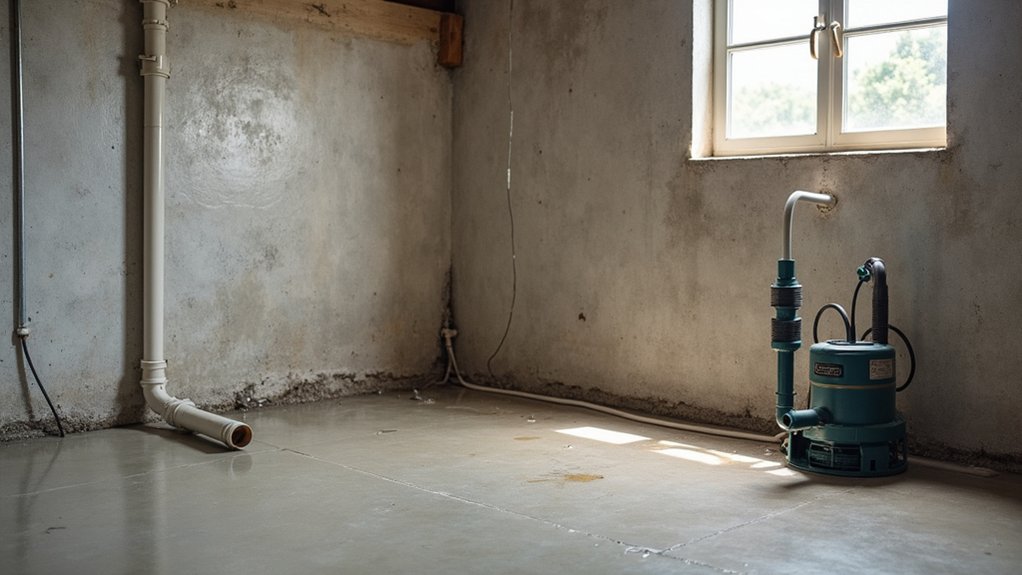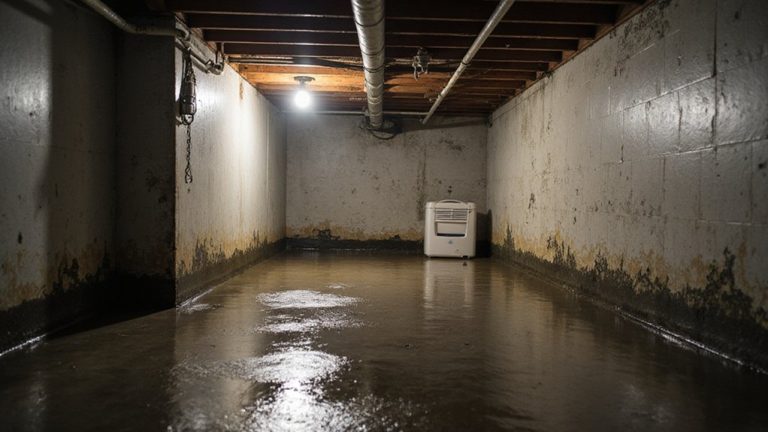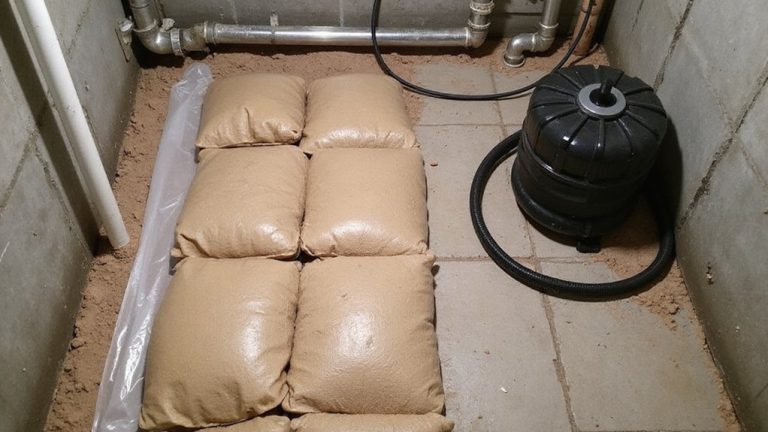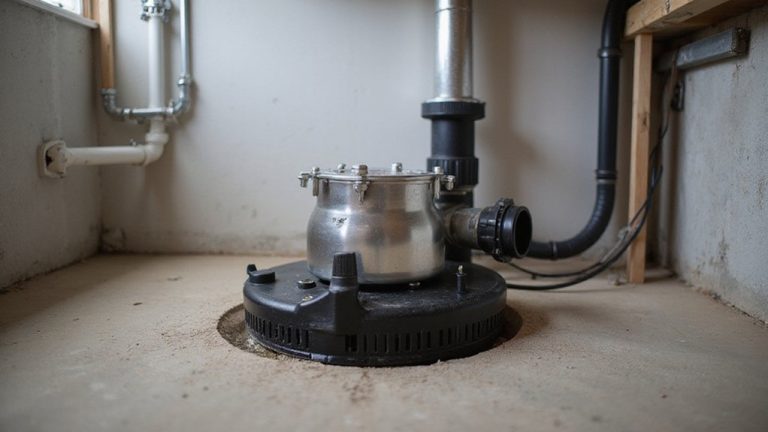Having a wet basement can be a frustrating and worrying experience for any homeowner. The good news is that there are several steps you can take to guarantee water from seeping into your basement. By tackling the root causes, such as poor drainage and cracks in the foundation, you can take control of the situation and protect your home’s value. However, the key is understanding where the water is coming from and how to properly handle the issue. Let’s inspect the steps you can take to verify a dry, comfortable basement.
Identifying the Causes of Basement Water Seepage
If your basement has been plagued by persistent water seepage, it’s important to start by identifying the root causes.
One common issue is soil erosion around the foundation, which can create cracks and gaps that allow water to seep in. Another factor is a high water table, where the groundwater level is too close to the basement floor, causing water to emerge from the ground.
Understanding these underlying problems is vital for choosing the right solutions to keep your basement dry and protected. Addressing the causes head-on is the key to effectively stopping water intrusion. Water seepage signs, such as powdery white deposits and pooling water, can indicate potential foundation damage that requires professional assessment.
Inspecting Your Home’s Foundation and Exterior
While identifying the root causes is essential, thoroughly inspecting your home’s foundation and exterior is the next critical step in stopping water seepage. Examine the soil moisture levels around your home, as high moisture can seep into the basement.
Inspect your home’s weatherproofing materials, like caulk and sealants, for any cracks or deterioration. Pay special attention to the grading and slope of the land around your home, ensuring water flows away from the foundation. Addressing issues with your home’s foundation and exterior can considerably reduce the risk of basement water seepage. Foundation pressure from soil can cause significant water intrusion issues, especially when moisture and weather changes lead to soil expansion and contraction.
Improving Drainage Around Your Home
Improving the drainage around your home can drastically reduce the risk of basement water seepage. Proper soil grading and landscape contouring are key. Guarantee the ground slopes away from your home’s foundation, guiding water runoff. This may require adjusting the soil or adding fill.
Consider installing french drains or drainage pipes to redirect water. Inspect and clean your gutters regularly, guaranteeing downspouts channel water far from your home. Making these simple improvements can go a long way in keeping your basement dry and your home protected. Your home’s health and your family’s comfort are worth the effort.
Waterproofing Your Basement Walls
Waterproofing your basement walls is one of the most effective ways to prevent water seepage and protect your home’s foundation. Begin by properly grading your basement walls to direct water away from the home.
Next, evaluate waterproof coatings designed for below-grade application. These specialized paints and sealants create a durable barrier against moisture intrusion. Apply them thoroughly, following the manufacturer’s instructions for best results.
Waterproofing may require some upfront investment, but it’s a wise long-term solution that safeguards your basement and overall home value. Take this important step to keep your basement dry and secure.
Addressing Cracks and Gaps in Your Basement
Once you’ve waterproofed your basement walls, you’ll need to address any cracks or gaps that could allow water to seep in. Sealing expansion joints and caulking window frames are essential steps to prevent further moisture issues. This helps guarantee a thorough solution to your basement’s water woes.
Take the time to carefully inspect your basement for any potential entry points and seal them up. This proactive approach will give you peace of mind and protect your home from the damaging effects of water intrusion. With some diligence, you can safeguard your basement from unwanted moisture.
Installing a Sump Pump System
A sump pump can be a highly effective solution for preventing water from seeping into your basement. When determining the right sump pump size, consider the square footage of your basement and the expected water flow.
Once installed, be sure to test the sump pump’s operation regularly. This will guarantee it’s ready to spring into action when needed. A functioning sump pump can save you from costly water damage and create a dry, comfortable basement environment.
Don’t wait until it’s too late – take proactive steps to maintain your home protected.
Maintaining Gutters and Downspouts
Alongside a trustworthy sump pump, properly maintaining your home’s gutters and downspouts is essential for keeping water from seeping into your basement. Cleaning gutters frequently prevents clogs that can divert water flow and lead to leaks.
Inspecting downspouts regularly ensures they’re directing water away from your home’s foundation. Clogged or damaged gutters and downspouts allow water to pool around your basement, putting your home at risk. Taking the time to properly maintain these pivotal components is a straightforward, cost-effective way to protect your basement from water damage. Your home’s well-being depends on it.
Considering Professional Basement Waterproofing
While maintaining your home’s gutters and downspouts is essential, sometimes the water issues you face in your basement may require more extensive solutions. That’s where professional basement waterproofing comes into play.
By exploring cost-effective options and reviewing DIY approaches, you can find the right solution to keep your basement dry and protected. Professional contractors can assess your specific needs, provide customized recommendations, and implement proven techniques to address the root cause of the problem.
This may involve exterior drainage systems, interior sealants, or even full-scale waterproofing installations. The investment can pay off by preventing costly water damage and preserving the value of your home.
Frequently Asked Questions
Can I Use Bleach to Stop Basement Water Seepage?
Using bleach to stop basement water seepage isn’t recommended. Its chemical composition could damage your home and pose potential health risks. There are safer, more effective solutions to address the underlying issue causing the seepage.
Will Waterproofing My Basement Increase My Home’s Value?
Waterproofing your basement can increase your home’s equity and improve its curb appeal, making it a more attractive and precious property. It’ll make your space feel drier, safer, and more welcoming for your family.
How Long Does Basement Waterproofing Typically Last?
Proper basement waterproofing with moisture barriers and waterproof coatings can last 10-15 years, providing long-lasting protection. This investment demonstrates your commitment to your home and creates a sense of safety and belonging for your family.
Can I Install a Sump Pump System Myself?
You can install a sump pump system yourself, but it’s challenging. Hiring a pro has benefits like proper drainage and lifetime warranty. They’ll make sure your basement stays dry and you feel secure in your home.
What Is the Average Cost of Professional Basement Waterproofing?
The average cost of professional basement waterproofing ranges from $2,000 to $10,000. While it costs more than a DIY sump pump system, the estimated project budget often pays off with long-term peace of mind and protection for your home.



